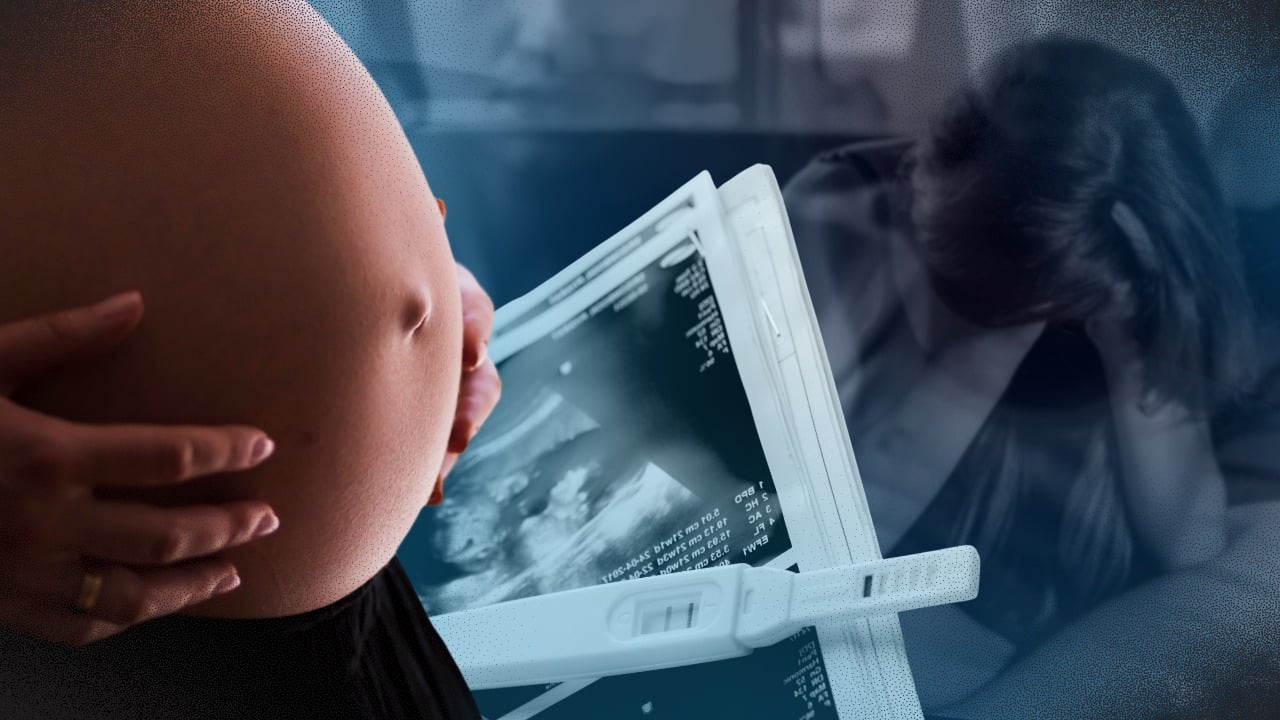Controversial teen pregnancy bill gets President’s backing

President Marcos on Friday said educating the youth about the risks and challenges of teenage pregnancy is “very, very, important” as they must know the consequences of “having a child too soon, too early.”
The President made the remarks when asked to comment on the proposed comprehensive sexuality education (CSE) program, which is included in the Senate and House versions of the adolescent pregnancy prevention bill.
“There are more teenage pregnancies, there are more single mothers, there are more illnesses. Add to that, there are also teenage mothers who don’t know how to take care of themselves during pregnancy, what to eat. And when the baby is born, what to feed the child, how to take care of the newborn,” Mr. Marcos said in an interview in Burauen, Leyte.
He added that the government must address the rising incidence of adolescent pregnancies.
Setting healthy boundaries
The bill proposes that CSE be made “a compulsory part of education, integrated at all levels with the end goal of normalizing discussions about adolescent sexuality and reproductive health and to remove stigma at all levels.”
Filed by Sen. Risa Hontiveros, Senate Bill No. 1979 awaits deliberation on second reading, while the House has already passed its version on final reading in September 2023.
But conservative groups, such as the National Coalition for the Family and the Constitution (NCFC), have registered their opposition to the measure, finding some provisions to be espousing “inappropriate concepts’’ and threatening “moral, societal and spiritual values.”
Supporters of the bill, on the other hand, said it aims to help minors set proper and “healthy” boundaries, specifically on what is appropriate or inappropriate touching, that could shield them from sexual abuse
The group Child Rights Network on Friday stressed that SB 1979 is “culturally sensitive and age-appropriate,” contrary to claims by lawmakers, including Sen. Joel Villanueva who warned that the measure is “like a prelude to abortion.”
Salient points
The bill cites the need for a “national program of action and investment plan for the prevention of adolescent pregnancy,” to be crafted by the government, nongovernment organizations and civil society groups.
It also calls for “age-appropriate” CSE that should be standardized and taught in all public and private elementary and high schools, as well as programs to guide parents and guardians at the community level.
Informed decisions
Youths age 16 to 18 shall be allowed access to “sexual and reproductive health information and services.” Those who are younger need to have the consent of parents or guardians to get the same access.
Pregnant adolescents shall be entitled to social protection and medical services from local governments and Philippine Health Insurance Corp.
For the University of the Philippines Population Institute (UPPI), the CSE bill is relevant more than ever in the age of social media, saying: “Society must take responsibility to ensure that young people have accurate and age-appropriate knowledge to make informed decisions about their sexual health.”
Citing the results of its Young Adult Fertility and Sexuality Study in 2021, UPPI said that the bill would be crucial to children and teens who had become increasingly reliant on peers and social media for information about sex and reproductive health.
The study has also found that more minors felt they have “no one to consult” regarding their questions about sex, the institution said.
Protecting minors
The UPPI study found that only 1 in 10 had discussed such topics in their household, while 44 percent of the female respondents and 39 percent of the male participants had “no material sources of information about sex.”
In a statement, the Council for Welfare of the Children (CWC) backed the bill, noting that it is “anchored on child protection.”
It cited the alarming rise in teenage pregnancy cases, which former economic managers have already called a “national social emergency.”
Based on data from the Philippine Statistics Authority, 72 percent of minors who got pregnant were fathered by older men, “which could be a sign of abuse and exploitation,” it said.
“Children should be studying, playing, and enjoying a happy and safe youth. This is why we are fully supportive of this proposed legislation as an important step to an effective protection of children,” said the CWC, an agency under DSWD.
The CWC pointed to Section 6 of the bill, where the Department of Education and other agencies would create and promote a CSE that is “medically accurate and sensitive to the various cultures, age-appropriate and inclusive to the adolescent members of the LGBTQIA [community].”

















